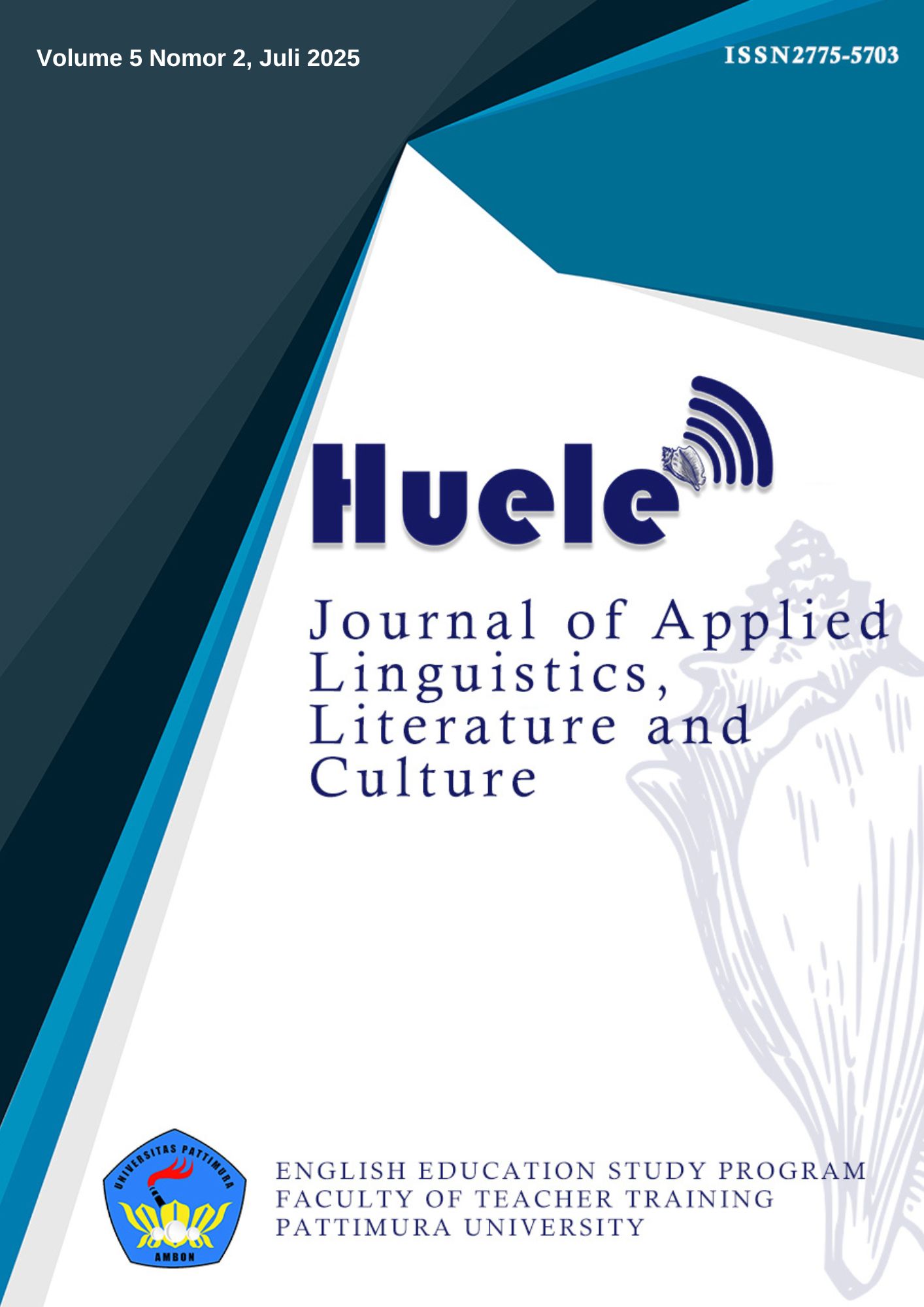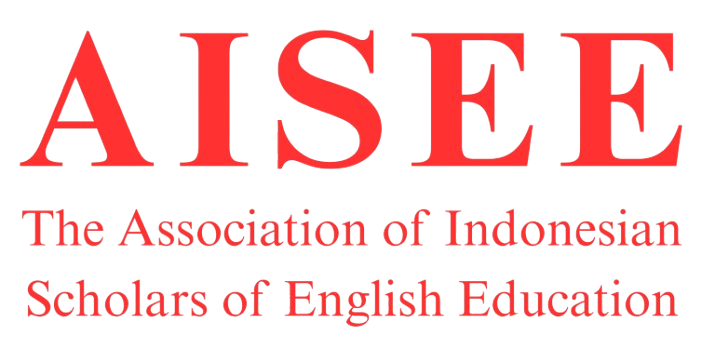Illocutionary Speech Acts in Song Lyrics Golden by HUNTR/X
Abstract
The 2025 Netflix film K-Pop: Demon Hunters and its chart-topping single “Golden” mark a new milestone in the globalization of the Korean Wave, exemplifying Western media’s creation of authentic, hybrid K-pop content for a global audience. This study seeks to elucidate the linguistic strategies underlying the song’s success by identifying, classifying, and analyzing the illocutionary speech acts in its lyrics. Employing a descriptive qualitative approach and Searle’s five categories of illocutionary acts, the research conducts a close reading to determine the pragmatic function of each utterance. The findings show that, of the 39 utterances analyzed, expressive acts are the most prevalent type (44%), followed by commissive acts (36%). Representative (13%), directive (5%), and declarative (3%) acts appear more sparingly to establish the narrative and mark pivotal shifts. The dominance of expressive and commissive acts suggests that the song’s communicative force derives primarily from articulating psychological states and committing to future actions, rather than merely recounting events. This linguistic emphasis on emotional transformation and empowerment is central to how “Golden” convincingly performs an authentic K-pop identity despite its English lyrics and Western production.
Downloads
Copyright (c) 2025 Rachmi Retno Nursanti, Annery Fienta, Emanuela Giovanni Toisuta

This work is licensed under a Creative Commons Attribution-NonCommercial-ShareAlike 4.0 International License.







